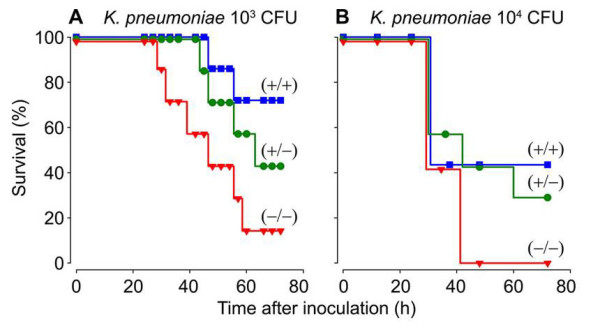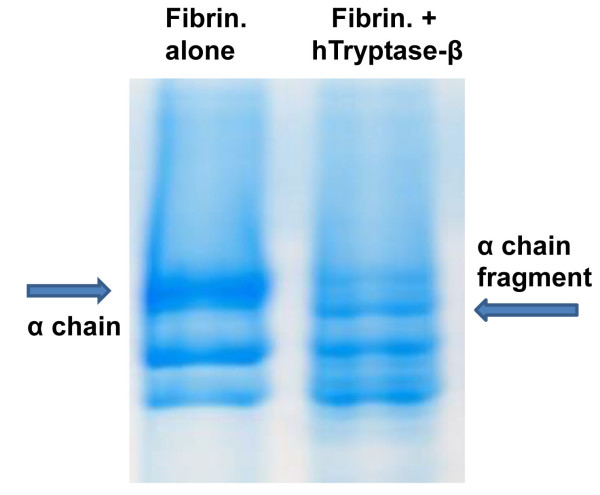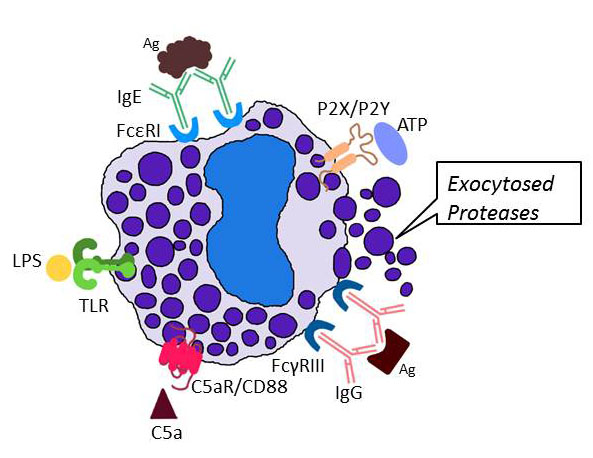Posts by Richard Stevens
Beneficial Role of Mast Cell Tryptases in Bacterial Infections
Sepsis is caused by the immune system’s response to a serious infection, most commonly bacteria. Although sepsis is a more serious health problem in the underdeveloped world, those who had to take penicillin or another antibiotic to prevent them from developing sepsis are keenly aware of the importance of our ability to combat even common…
Read MoreTryptase Prevention of Internal Blood Clots
Life-threatening systemic anaphylaxis occurs when too many IgE-sensitized MCs in the body simultaneously degranulate when they encounter the appropriate antigen. While the adverse roles of MCs and their mediators in severe allergic reactions have been known for decades, the conservation of MCs for more than 500 million years of evolution (Wong et al., Biochem. Biophys. Res.…
Read MoreSummary of Dr. Stevens’s Research Interests and Accomplishments
My research program is focused on the biochemistry, molecular biology, and cell biology of mast cells (MCs) and other effector cells that participate in blood coagulation, inflammation, connective tissue remodeling, acquired immunity, and innate immunity. In regard to MCs, we and others showed that these tissue-resident immune cells release a diverse array of biologically active…
Read More



